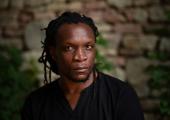Richard Dorment: Warhol After Warhol review - beyond criticism

A venerable art critic reflects on the darkest hearts of our aesthetic market
2023 was a good year for Andy Warhol post-mortems: after Nicole Flattery’s Nothing Special, after Alexandra Auder’s Don’t Call Home, Richard Dorment’s Warhol After Warhol.








